We would like to thank the +90 participants from South America, Europe, North America and Asia that participated in the event in Manaus.
Click here to download event's Summary
We had +60 presentations and posters focusing on the study of the water cycle, hydrology, climate variability and the applications of remote sensing techniques to investigate water management issues in the context of the SWOT mission.
The first conference “South America Water from Space” (after an introductory one in Rio de Janeiro in 2016) was held in Santiago, Chile, from the 26th to 28th of March 2018. The 2019 conference “South America Water from Space II ” was held in Manaus, State of Amazonas in Brazil on November 4-7, and was organized by CPRM, IRD, CNES , LEGOS, GET and UEA.


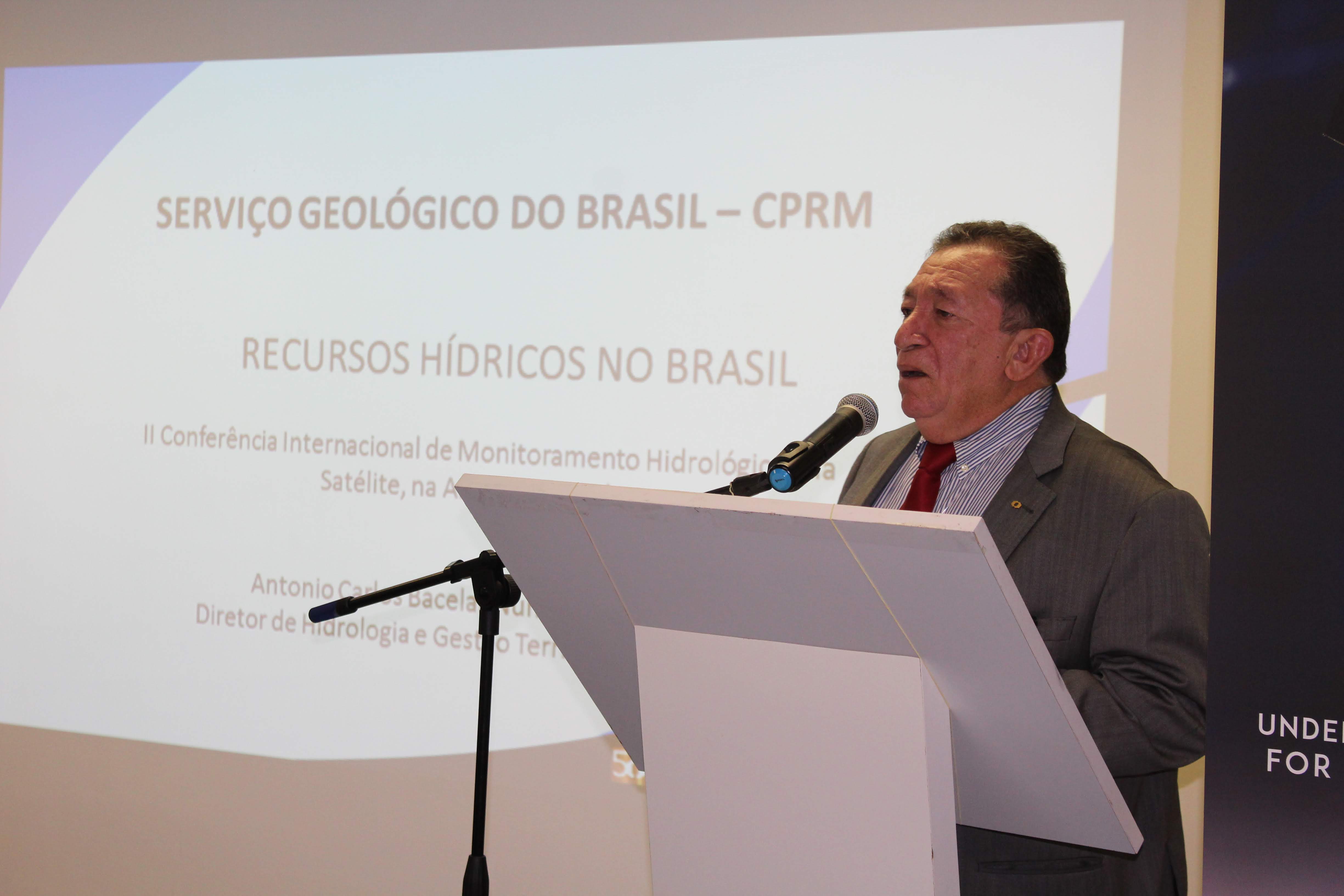
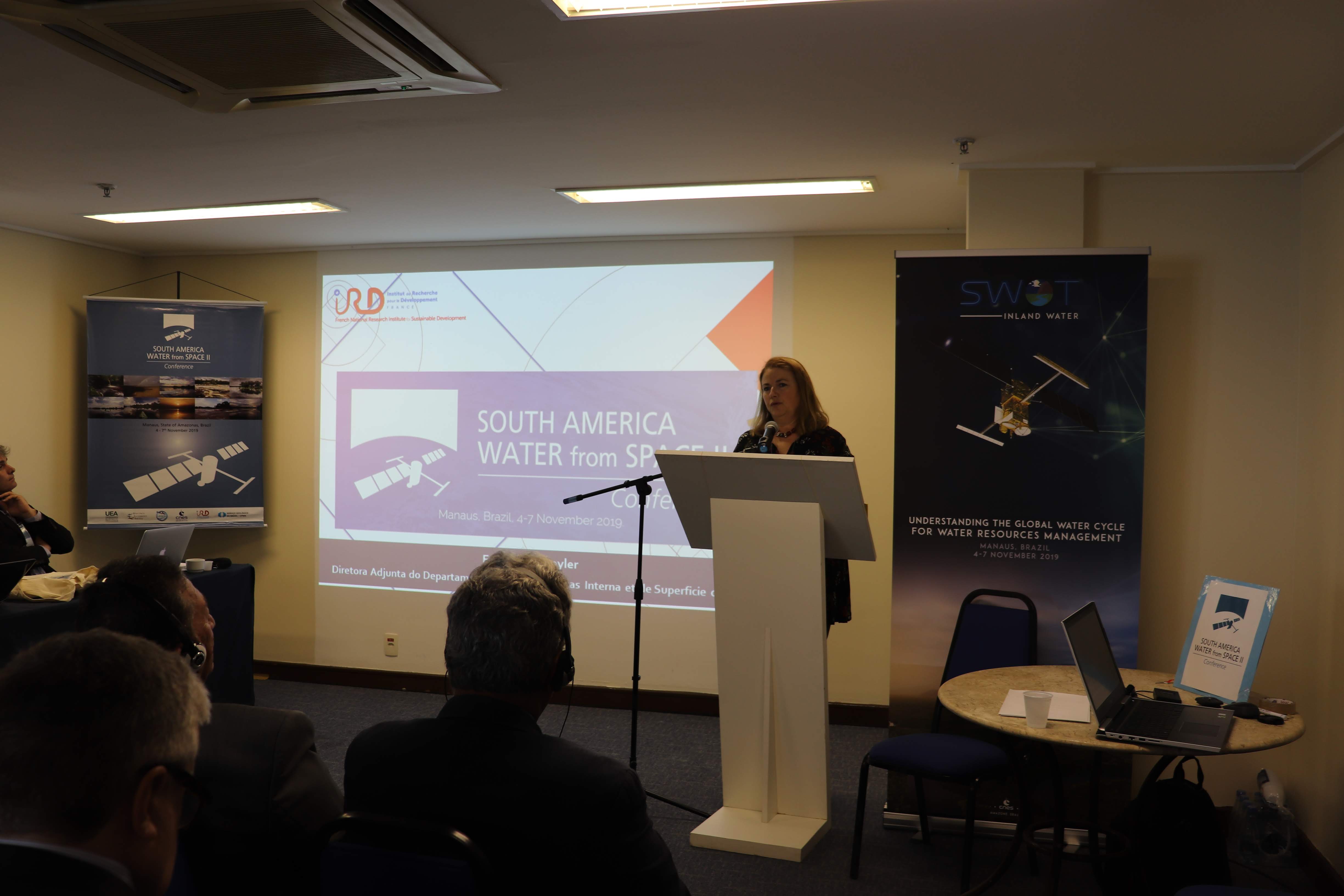
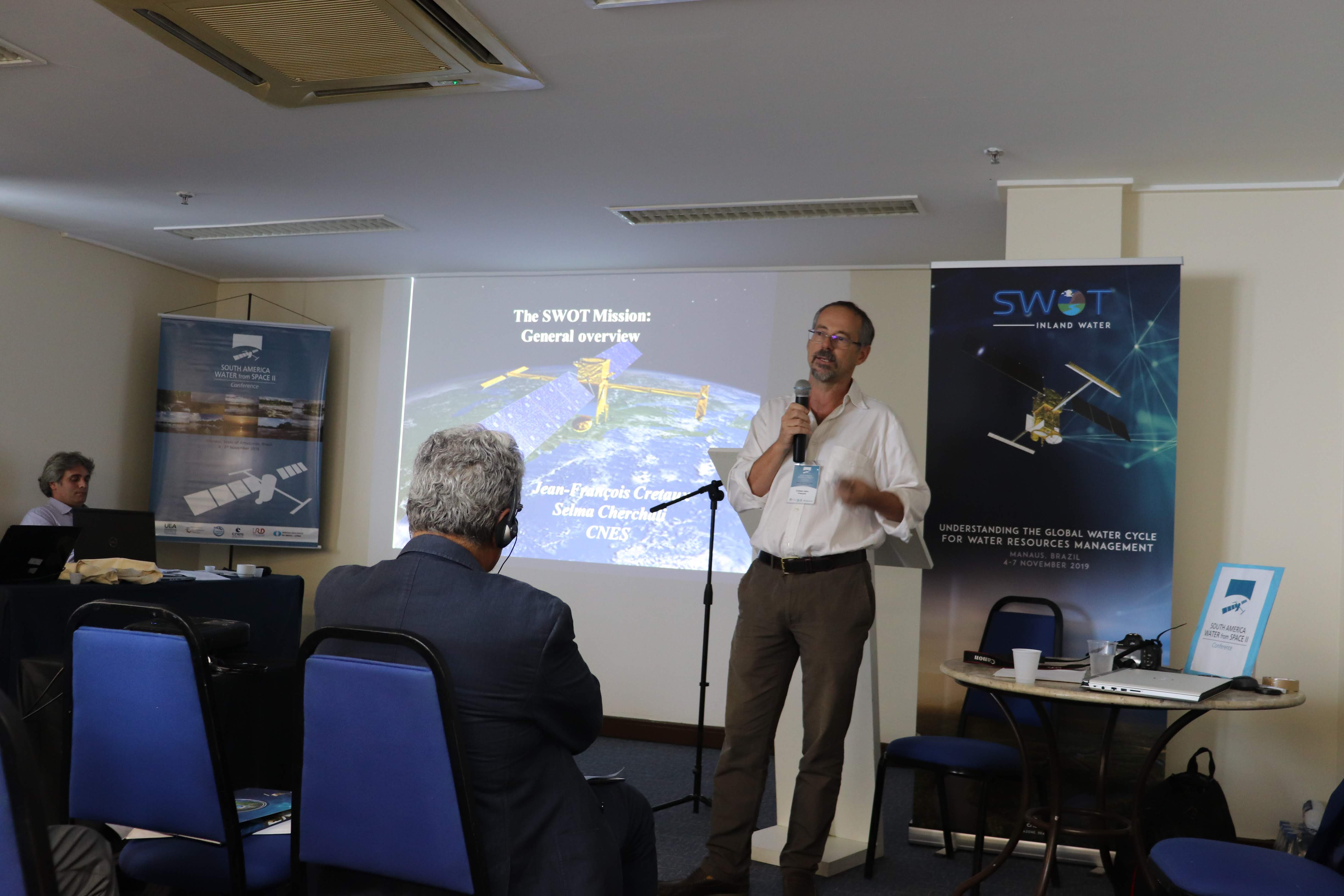

Media Coverage
Interview on TV em Tempo (SBT-Amazonas)
Interview on TV Crítica (Field Trip Part)
Interview on Rede Amazonas (Globo-Amazonas) (Field Trip Part)
News at Crítica Journal (Amazonas)
News at Crítica Journal (Amazonas), Field Trip Part
News at Crítica WebPortal (Amazonas)
News at G1 WebPortal (Amazonas)
-
Climate, weather, and human life are profoundly affected by changes in Earth’s continuous, interconnected ‘water cycle’. Observing and monitoring the key variables governing the global water cycle is essential to our understanding of the Earth’s climate, forecasting weather, predicting floods and droughts, and improving water management for human use. The progress of Earth Observation Satellite Technologies (EO) has made it possible since at least the last 40 years to survey several of these key water variables from space. In the coming years, an increasing number of EO missions will offer an unprecedented capacity to observe the Earth’s surface, its interior and the atmosphere, ushering in a new era in the science of the Earth environment and the water cycle.
-
Earth has a limited amount of water that recycles itself in what is called the 'water cycle.' Climate, weather, and human life and activities are profoundly affected by the variability and changes in this continuous, interconnected cycle. Therefore, observing, monitoring and predicting the key variables governing the global water cycle is essential to our understanding of the Earth’s climate, forecasting our weather, predicting floods and droughts, and improving water resources management. The progresses of Earth Observation Satellite Technologies (EO) over the past decades made possible to survey several of these variables from space. In the coming years, an increasing number of satellite missions will offer an unprecedented capacity to observe the Earth's surface, its interior and the atmosphere, ushering in a new era in the science of the Earth Environment and the water cycle.
To foster the challenges and opportunities resulting from this incoming capacity, IRD, CNES (The French Space Agency) and several institutes in South America (Universities, State and Federal Agencies) initiate the conference series “South America Water from Space”. The focus is to discuss the state-of-the-art instruments and scientific developments used in characterize global water cycle variability and to identify the primary needs in modeling and data assimilation to improve our knowledge of water cycle science and our ability to quantify future changes in water cycle variables.
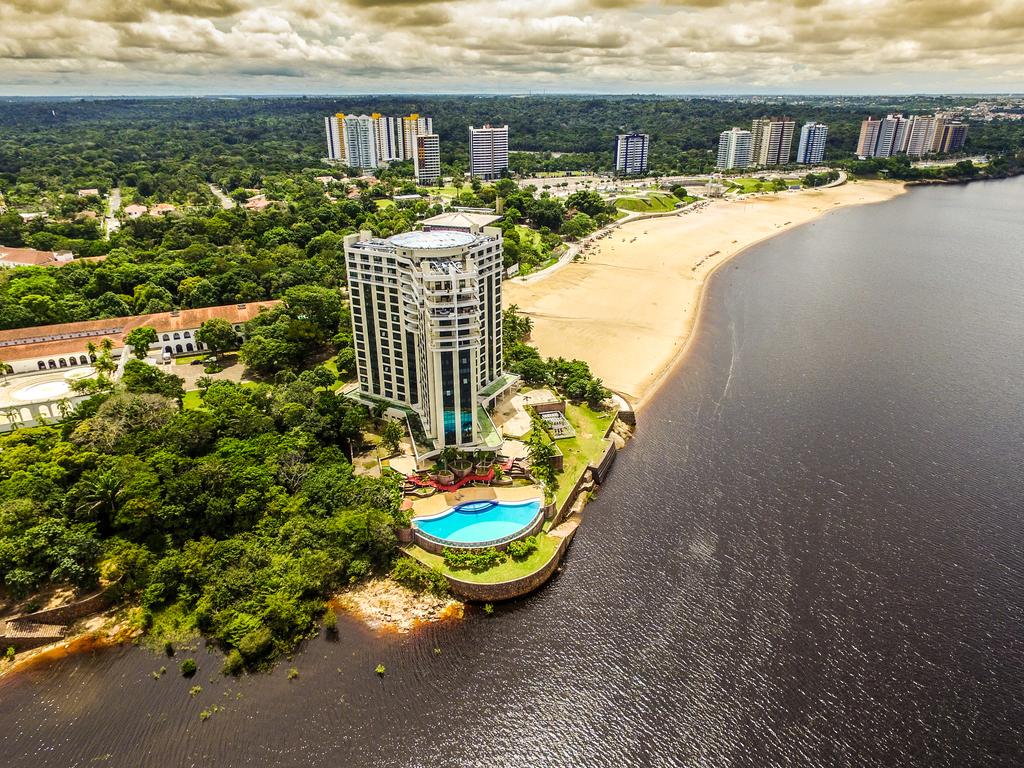
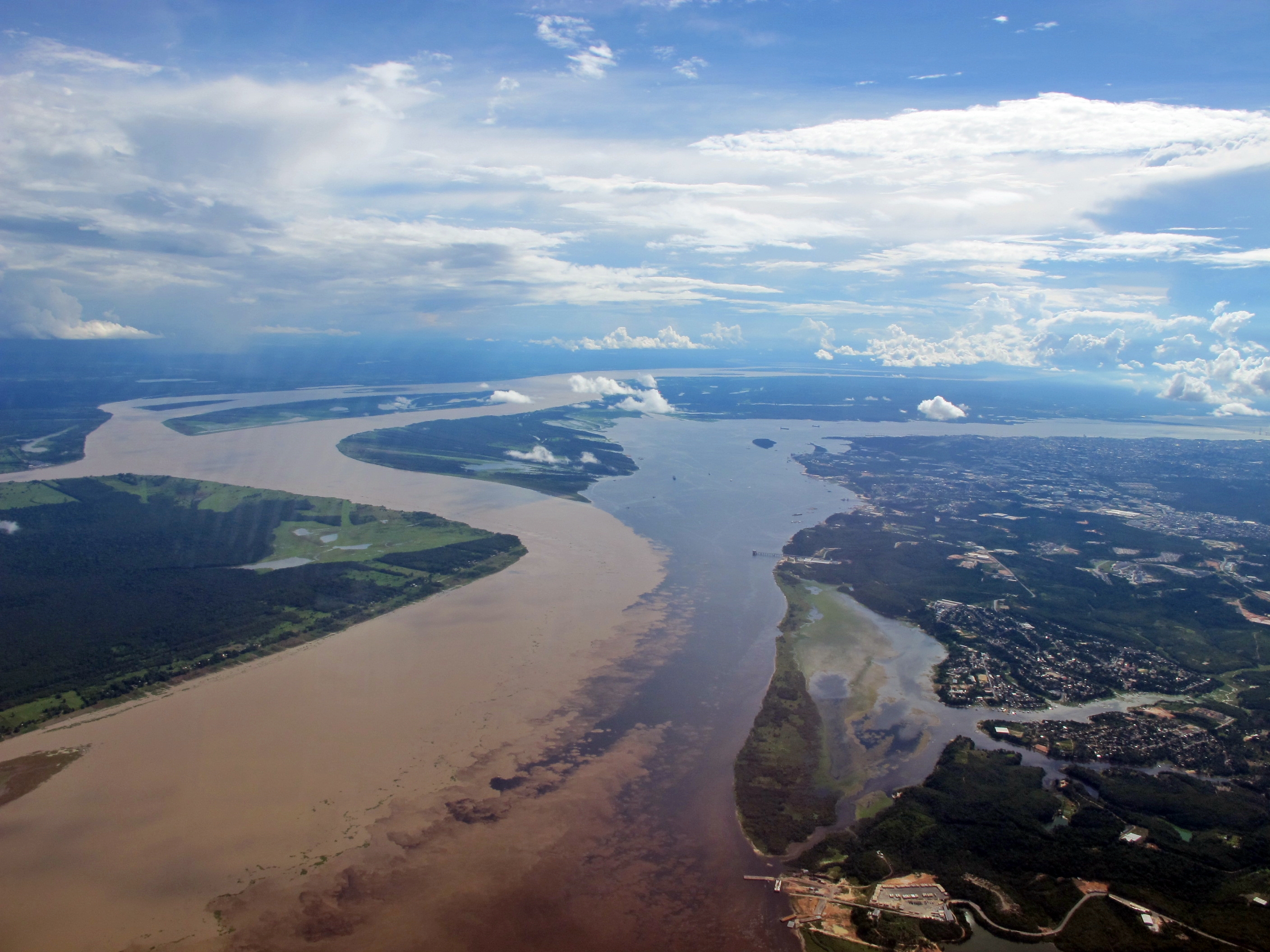

"SWOT is an ambitious satellite mission, providing breakthrough in scientific and applications fields, allowing the collection of unprecedented observations of the world's oceans and terrestrial surface waters. Beyond the scientific contribution to a better understanding of the water cycle, SWOT could have an economic and social impact with the provision of information on freshwater resources. Bridging the gap between remote sensing experts, hydrologists and operational agencies is one of the objectives of the CNES SWOT downstream program. Within this objective, the partnership with South America scientists and stakeholders is a crucial driver of the SWOT science and application programs"
Surface Water Ocean Topography
Part of the conference will be devoted specifically to the advent of the new capabilities of the Surface Water Ocean Topography (SWOT) Mission (NASA, CNES, CSA and UKSA) and the possibilities provided by the current satellites of the European COPERNICUS space program. The objectives of the SWOT mission, to be launched in first semester 2022, just less than one year away from the conference, are to make the first global survey of the Earth's surface water at an unprecedented 1km² resolution, to observe the fine details of how terrestrial surface water bodies change over time.
Thus, presentations that show the benefits of high spatial resolutions around the globe, and that could serve as inspiration for South American research teams and/or operational institutions, or even upstream work, showing SWOT capabilities are particularly welcome. In the frame of the IRD-CNES initiative “ SWOT Early adopters from South America”, this conference will be jointly organized by IRD, CNES, CNRS, CPRM, ITAIPU and IPH.


